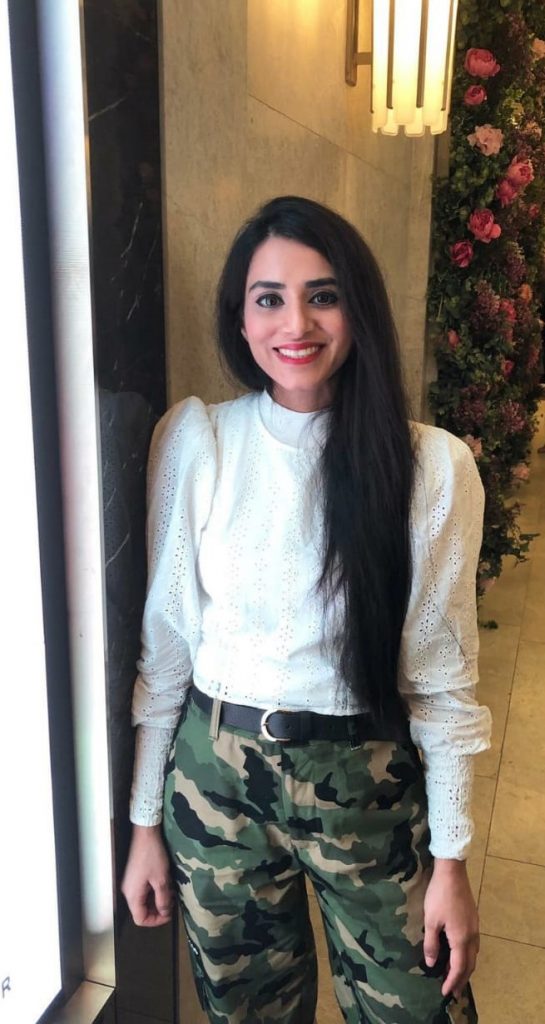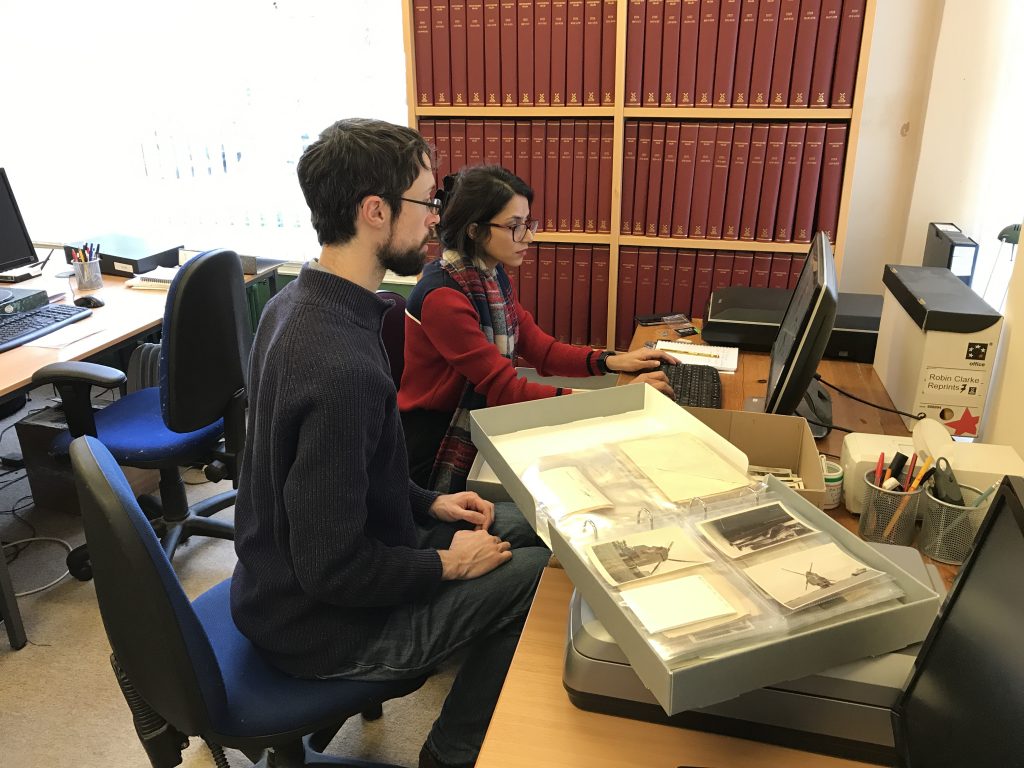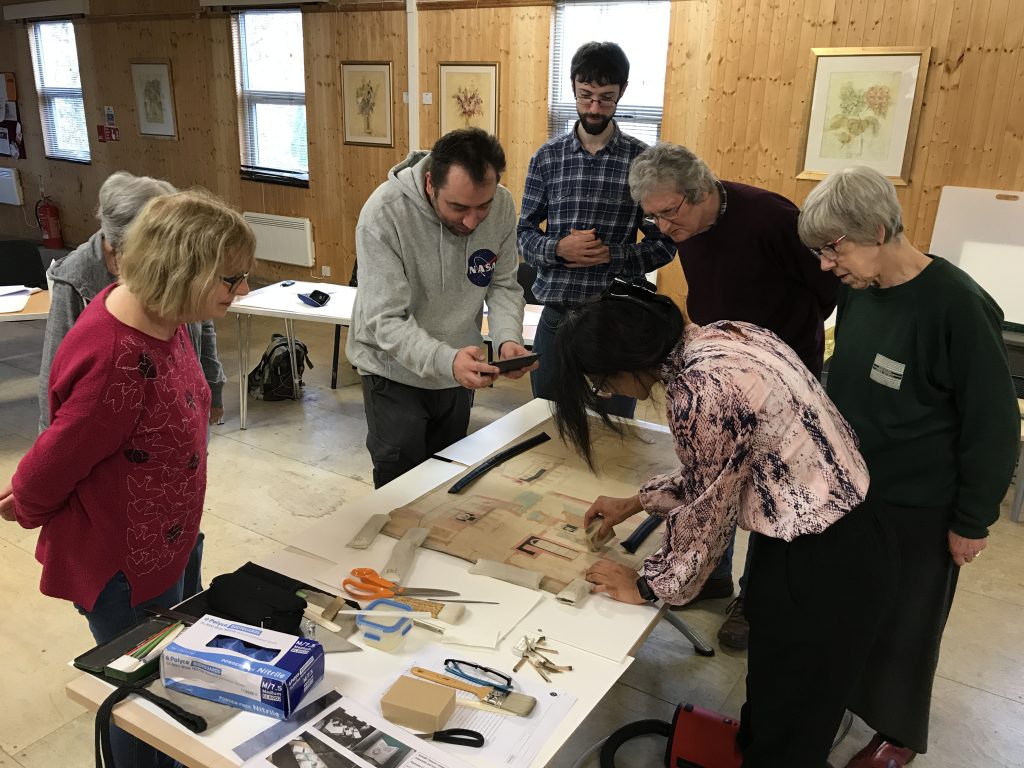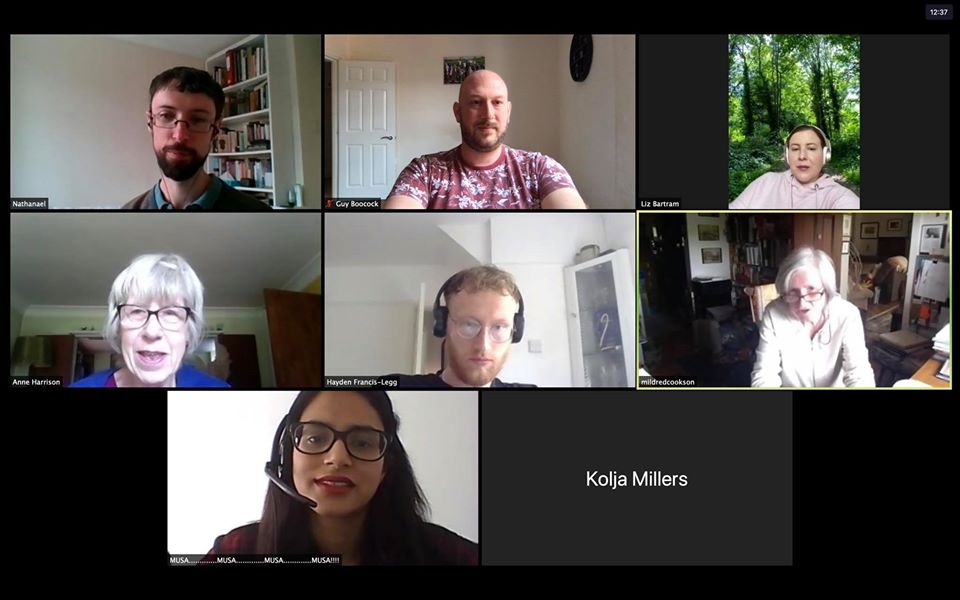
One of our volunteers, Noor, has written about her experience at the Mills Archive:
I am sure everyone has their own different experiences of being an archival volunteer. Today I am sharing some of my beautiful experience of working as an unexperienced volunteer at The Mills Archive Trust. Before I thought librarians and archivists handle the same jobs. The Chairman of Trustees, Mr Ron Cookson, and archivist Nathanael Hodge explained to me the difference between a librarian and an archivist. I was made aware that a librarian’s job is to help find information and conduct research on a specific topic. Whereas an archivist is in charge of processing, collecting, appraising and cataloguing important documents and records. Librarians organise and arrange the books on the shelf. Archivists focus on the preservation and authentication of historical documents.
In the past 10 years, I have worked as a credit controller, invoice clerk and office administrator and have no experience of doing archival volunteering. On my first day at the Mills Archive I was given a tour of the beautiful building, Watlington House. The building is very atmospheric. I was taken into the storerooms where the records of the milling heritage have been preserved and protected. I was shown how the millers’ documents, mill photos, negatives and certificates are kept in acid free boxes, and the use of a de-humidifier in the basements to keep the ledgers, photographs, negatives, certificates and letters safe from getting mouldy, damp and smelly. All the archival documents must be handled delicately. I was provided with a detail explanation on the Rex Wailes collection by Nathanael Hodge, and how after many years of negotiations with The Science Museum, the Rex Wailes collection was handed to The Mills Archive Trust. There are portraits of Rex Wailes – about his life, architectural drawings, certificates, and collections on the walls in the corridor of the building.

Honestly, the experience I have gained as a volunteer has truly been indispensable. My time at The Mills Archive Trust began with a box of photographs of mills from the Rex Wailes collection. The photos tell us what the past used to be like, how people communicated, the mills’ historical background, the milling families’ hard work, what legal documents looked like in comparison to those used today, local community and the changing technology. I was shown how the photographs were scanned and placed in a transparent folder to prevent further degradation. I have learned how to use an unfamiliar cataloguing system and how to digitise the photographs. I came across different external and internal parts of the corn and flour mills and focused on close-ups of machinery parts. The goal is to get the photos catalogued so everyone can see them online. The Mills Archive are dedicated to preserving the milling history for the new generation to enjoy and learn from. Currently, I am working on the H C Casserley collection.

I love my time at The Mills Archive Trust especially the afternoon tea/coffee. I am blessed to be working with helpful, friendly, and generous employees and volunteers who always brought a delicious treat to brighten the working atmosphere – cakes turn any frown into a smile! Talking to other volunteers, knowing their past experiences, how they felt being an archival volunteer and the collections and rare documents and photographs they have worked on and helped to preserve added a new layer to my experience as a volunteer. Luckily, I attended a workshop in February 2020, a course run by conservator Victoria Stevens. An informative demonstration was provided, in which we learned how to handle black mould exposed architectural drawings and a damaged/torn miller’s records book.
Nowadays, due to the coronavirus pandemic, all employees and volunteers are working from home. I enjoy working from the office. We are not allowed to bring the boxes of photographs home to scan and then catalogue them. Its not safe at all to handle the old photos and documents at home due to changes in atmosphere.


